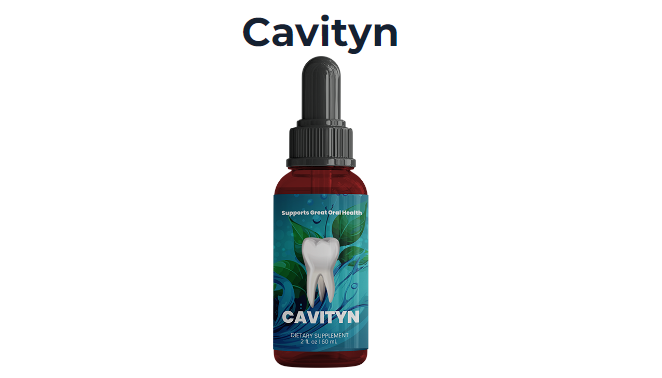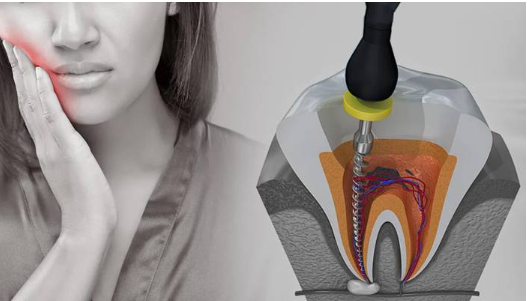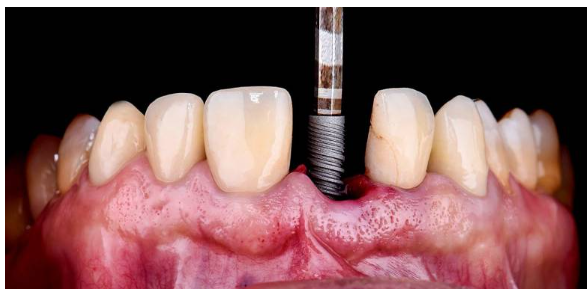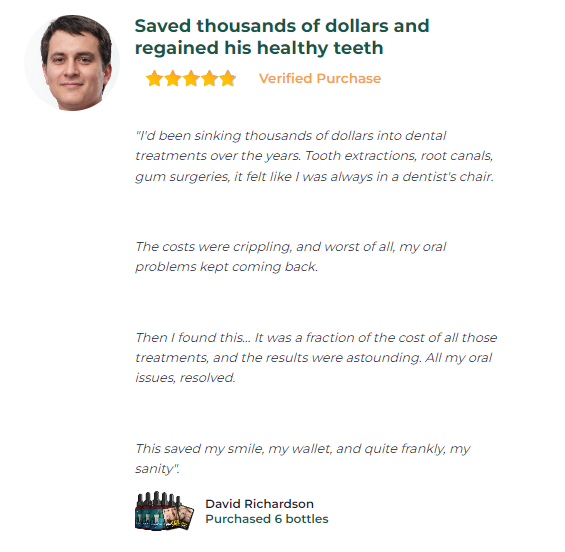Cavityn stands out as a unique dental health formula designed to regenerate, remineralize, and renew oral health. But does Cavityn live up to its claims? This comprehensive review delves into the science behind Cavityn, its ingredients, potential benefits, and user experiences to provide an objective assessment of its effectiveness.

➡️ Don’t Miss Out on the Key to a Brighter, Healthier Smile – Explore Cavityn Now!”
What is Cavityn?
Cavityn is a dental health supplement that claims to regenerate, remineralize, and renew tooth enamel.
It is made with a blend of natural ingredients, including Lactobacillus Salivarius, Eucalyptus, Vitamin C, Collagen Catalyst, Green and White Tea Extracts, Aloe Vera Juice, Turmeric Extract, Calcium Phosphate, and Monk Fruit Extract.
How does Cavityn Work?
Cavityn works by providing the body with the nutrients it needs to remineralize tooth enamel. It also helps to reduce inflammation and promote healing of the gums.
Key Ingredients of Cavityn
Lactobacillus Salivarius:
Lactobacillus Salivarius is a probiotic bacterium that naturally resides in the mouth and plays a crucial role in maintaining oral health.
It produces bacteriocins, which are antimicrobial substances that effectively combat harmful bacteria in the mouth, such as Streptococcus mutans, the primary culprit behind tooth decay.
By reducing the growth of these detrimental bacteria, Lactobacillus Salivarius helps prevent the formation of plaque, the sticky biofilm that harbors cavity-causing bacteria.
Eucalyptus:
Eucalyptus, derived from the Eucalyptus globulus tree, possesses potent antibacterial and antifungal properties, making it an invaluable addition to Cavityn.
Its active compounds, such as eucalyptol and cineole, effectively inhibit the growth of harmful microorganisms that contribute to oral infections and gum disease.
Eucalyptus also enhances the cleansing action of saliva, helping to remove bacteria and maintain a healthy oral environment.
Vitamin C:
Vitamin C, a well-known antioxidant, plays a pivotal role in protecting the gums from damage caused by free radicals, unstable molecules that can harm cells and tissues.
Its antioxidant properties help neutralize these harmful free radicals, preventing oxidative stress and inflammation that can lead to gum disease.
Vitamin C also supports collagen synthesis, a crucial protein that maintains the strength and elasticity of gum tissues.
Collagen Catalyst:
Collagen Catalyst is a unique ingredient that stimulates the production of collagen, a vital protein that forms the structural framework of various tissues, including tooth enamel and gum tissues.
By enhancing collagen production, Collagen Catalyst helps maintain the strength and integrity of tooth enamel, making it more resistant to decay. It also promotes the regeneration of gum tissues, supporting overall oral health.
Green and White Tea Extracts:
Green and white tea extracts, rich in polyphenols, are renowned for their antioxidant and anti-inflammatory properties.
These polyphenols effectively combat free radicals, protecting the gums from oxidative stress and inflammation that can lead to gum disease.
Additionally, green and white tea extracts possess antibacterial properties, helping to reduce the growth of harmful bacteria that contribute to oral health issues.
Aloe Vera Juice:
Aloe vera juice, extracted from the Aloe vera plant, is widely recognized for its anti-inflammatory and soothing properties. Its active compounds, such as polysaccharides and acemannan, help reduce inflammation in the gums, alleviating symptoms of gum disease and promoting healing.
Aloe vera juice also exhibits antibacterial properties, contributing to the overall health of the oral cavity.
Turmeric Extract:
Turmeric extract, derived from the Curcuma longa plant, is a potent anti-inflammatory agent that effectively reduces inflammation in the gums, a primary factor in gum disease.
Its active compound, curcumin, inhibits the production of inflammatory mediators, preventing gum tissue damage and promoting healing. Moreover, turmeric extract exhibits antibacterial properties, helping to control the growth of harmful bacteria that contribute to oral infections.
Calcium Phosphate:
Calcium phosphate, a mineral compound comprising calcium and phosphorus, is essential for the formation and maintenance of strong tooth enamel.
It plays a crucial role in remineralization, the process of replenishing minerals in tooth enamel that have been lost due to acidic attacks from bacteria.
By providing a source of calcium and phosphorus, calcium phosphate helps restore the density and hardness of tooth enamel, making it more resistant to decay.
Monk Fruit Extract:
Monk fruit extract, derived from the Siraitia grosvenorii plant, is a natural sweetener that provides a pleasant taste to Cavityn without adding any sugar or artificial sweeteners.
It is considered a safe and healthy alternative to sugar, as it does not raise blood sugar levels or contribute to tooth decay. Monk fruit extract also possesses antioxidant properties, further supporting oral health.


Type of Cavities
There are three main types of cavities:
- Crown decay: This is the most common type of cavity and it occurs on the chewing surface of the tooth.
- Root decay: This type of cavity occurs on the root of the tooth, which is the part that is below the gum line.
- Recurrent decay: This type of cavity occurs in a tooth that has already been filled.
How Common are Cavities?
Holes are the most widely recognized constant sickness in kids and youths. According to the Centers for Disease Control and Prevention (CDC), 60% of children ages 5-11 have had at least one cavity experience.
Who might get a Cavity?
Anyone can get a cavity, but there are some factors that increase your risk, such as:
- Age: Children and adolescents are at higher risk for cavities than adults.
- Diet: A diet high in sugar and processed foods increases your risk for cavities.
- Oral hygiene: Not brushing and flossing your teeth regularly increases your risk for cavities.
- Dry mouth: Dry mouth can increase your risk for cavities.
- Medications: Some medications can increase your risk for cavities.
Symptoms and Causes
The symptoms of a cavity can vary depending on the type of cavity and how severe it is. Some common symptoms of cavities include:
- Toothache: This is the most widely recognized side effect of a hole.
- Sensitivity to hot or cold temperatures: This is a sign that the cavity is close to the nerve.
- Visible hole in the tooth: This is a sign that the cavity has progressed to the dentin layer of the tooth.
- Dark spot on the tooth: This is a sign that the cavity has progressed to the enamel layer of the tooth.
Depressions are brought about by microorganisms that develop on the teeth and structure plaque.. Plaque is a sticky film of bacteria that can eat away at the enamel, the hard outer layer of the tooth.In the event that plaque isn’t eliminated, it can solidify into tartar, which is more hard to eliminate. After some time, plaque and tartar can cause depression.
What are the signs of cavities?
There are several signs and symptoms that you may have a cavity. These include:
- A toothache
- Sensitivity to hot or cold temperatures
- A visible hole in the tooth
- A dark spot on the tooth
- Pain when you bite down
If you experience any of these signs or symptoms, it is important to see your dentist right away. Early diagnosis and treatment of cavities can help prevent them from becoming larger and more painful.
Tooth Decay Stages
Tooth decay, also known as dental caries, is a progressive condition that erodes the hard outer layer of your teeth, called enamel. If left untreated, tooth decay can lead to cavities, which can cause pain, infection, and even tooth loss.
Here are the four phases of tooth rot:
- Initial Demineralization: This is the earliest stage of tooth decay, where the enamel surface begins to lose minerals due to the acid produced by bacteria in plaque. At this stage, there may be no visible signs of decay.
- Enamel Decay: As the acid attacks the enamel, small holes or pits may form. This stage is still reversible if treated early.
- Dentin Decay: The acid penetrates deeper into the tooth, reaching the dentin, the layer beneath the enamel. This can raise awareness of hot and cold temperatures.
- Pulp Decay: The acid reaches the pulp, the soft tissue in the center of the tooth that contains nerves and blood vessels. This can cause severe pain and infection.


What Causes Cavities?
Cavities are caused by a combination of factors, including:
- Bacteria: Plaque is a sticky film of bacteria that forms on your teeth. When you eat sugary foods and drinks, the bacteria in plaque produce acid that can erode enamel and cause cavities.
- Diet: Eating a diet high in sugar and processed foods can increase your risk of cavities. Sugar provides food for bacteria and can damage enamel.
- Oral hygiene: Not brushing and flossing your teeth regularly can allow plaque and bacteria to build up on your teeth, increasing your risk of cavities.
- Dry mouth: Saliva helps to neutralize acids and protect your teeth, so having a dry mouth can increase your risk of cavities.
- Certain medications: Some medications can reduce saliva production, which can also increase your risk of cavities.
How do you get rid of cavities?
If you have a cavity, it can be filled by a dentist. Fillings are small restorations that are used to replace the decayed tooth structure.
How can I prevent cavities?
There are a number of things you can do to prevent cavities, including:
- Clean your teeth two times per day for two minutes with a fluoride toothpaste.. Make sure to brush all surfaces of your teeth, including the backs and the chewing surfaces.
- Floss once a day to remove plaque and bacteria from between your teeth.
- See your dentist for regular checkups and cleanings. Your dentist can remove plaque and tartar buildup and check for early signs of decay.
- Eat a sound eating routine that is low in sugar and handled food sources.
- Limit your intake of sugary drinks. If you do drink sugary drinks, rinse your mouth with water afterward to help neutralize the acid.
- See your doctor if you have dry mouth. There are treatments that can help to increase saliva production.
- If you take medications that can reduce saliva production, talk to your doctor about your risk of cavities and how you can manage it.
Cavityn Customer Review


Cavityn Pricing Information:
One bottle Cavityn for $69, (30 day supply) Plus Small Shipping Fee
Three bottles Cavityn for $59 each bottle,( 90 day supply) Free Shipping ( 1 Free Ebooks)
Six bottles Cavityn For $49 each bottle, ( 180 day supply) Free Shipping (2 Free Ebooks)
Cavityn supplement backed by an iron-clad 60-day money back guarantee.
Conclusion:
Cavityn presents a promising solution for individuals seeking to enhance their dental health and achieve a healthier, brighter smile.
Its unique combination of natural ingredients, including Vitamin C, Collagen Catalyst, Aloe Vera Juice, Calcium Phosphate, and Turmeric Extract, targets various aspects of oral health, promoting regeneration, remineralization, and renewal.
While further research is warranted to fully elucidate Cavityn’s long-term effects, the available evidence suggests that it can be a valuable addition to a comprehensive oral care routine.
Additionally, Cavityn is backed by clinical studies that support its ability to strengthen tooth enamel, reduce gum inflammation, and combat harmful bacteria.
Don’t Miss Out on the Key to a Brighter, Healthier Smile – Explore Cavityn Now!”
Disclaimer:
We are a professional product review website. We might receive compensation when you buy through our website. We may earn a small commission. The information contained on this website is provided for informational purposes only and is not meant to substitute for the advice provided by your doctor or other healthcare professional. The products have not been evaluated by the Food and Drug Administration and are not intended to diagnose, treat, cure, or prevent any disease.
➡️ SlimSwitch Reviews-Is It Scam or Legit? What Are Slim Switch Customers Saying?
